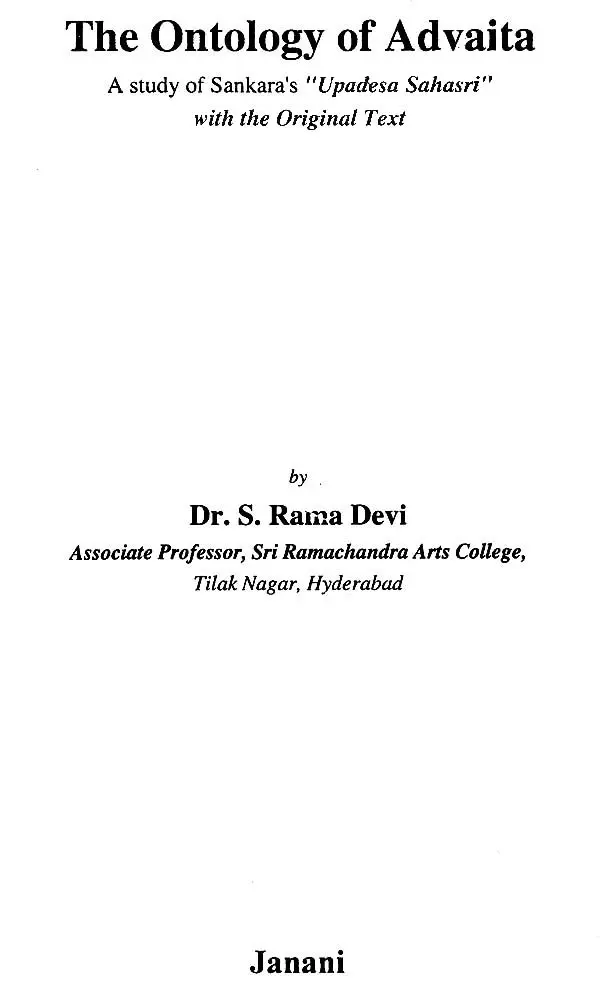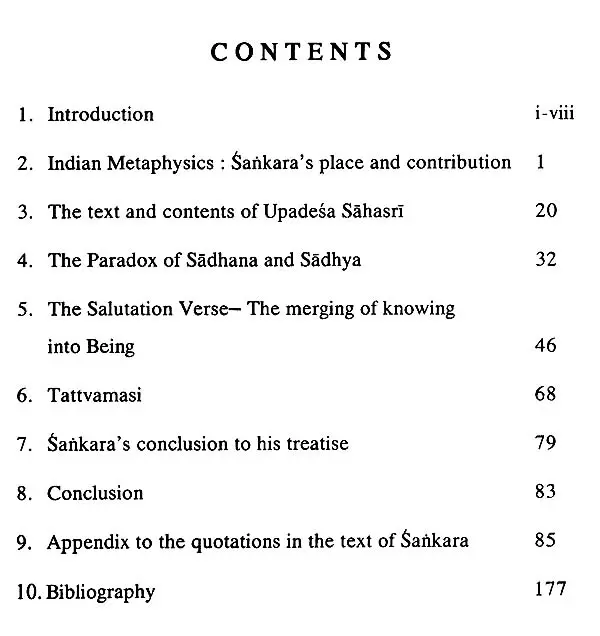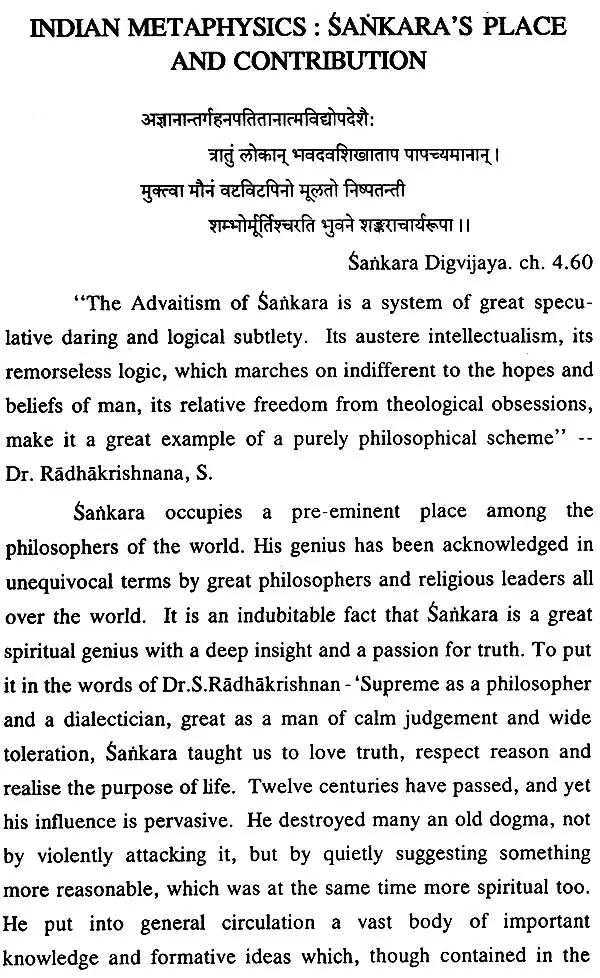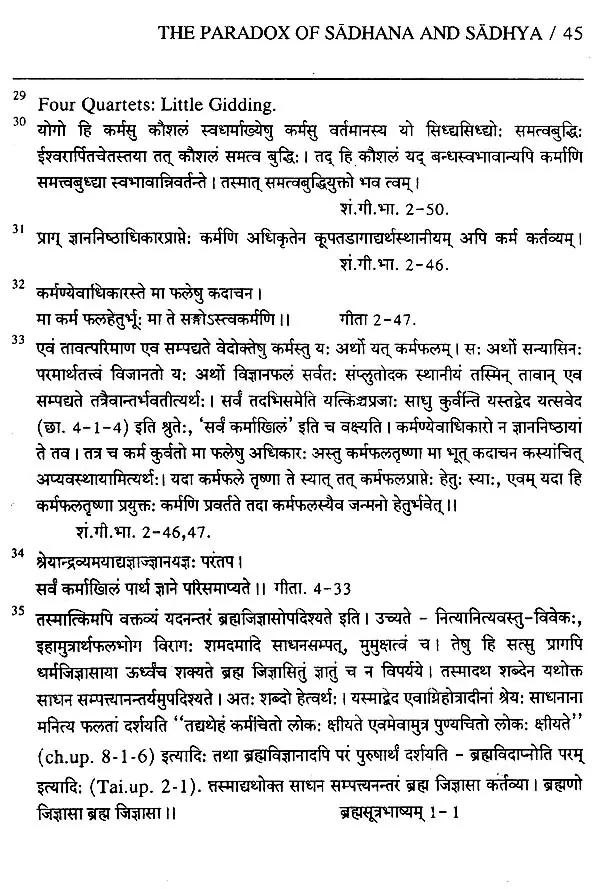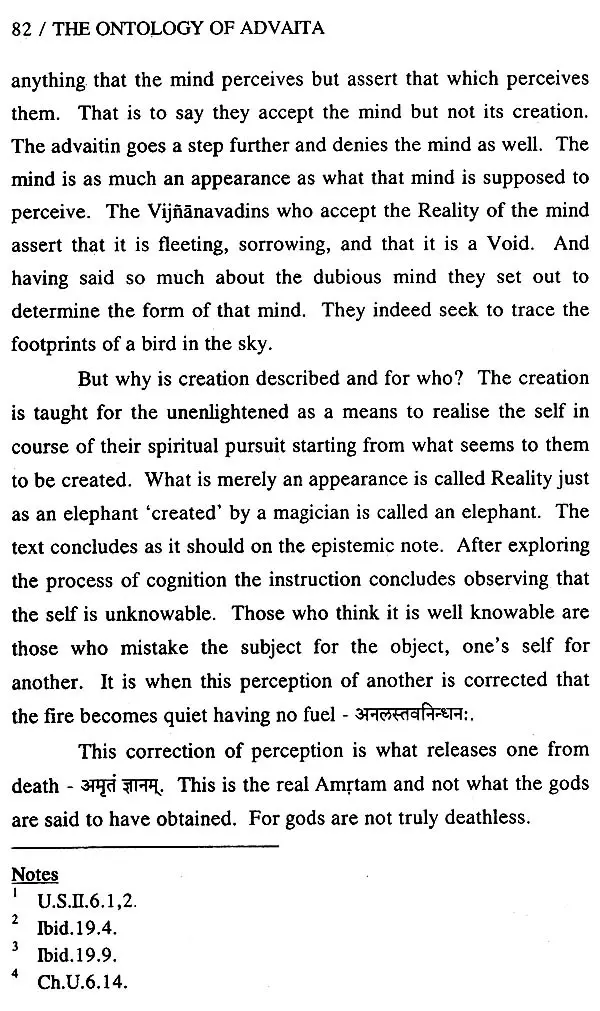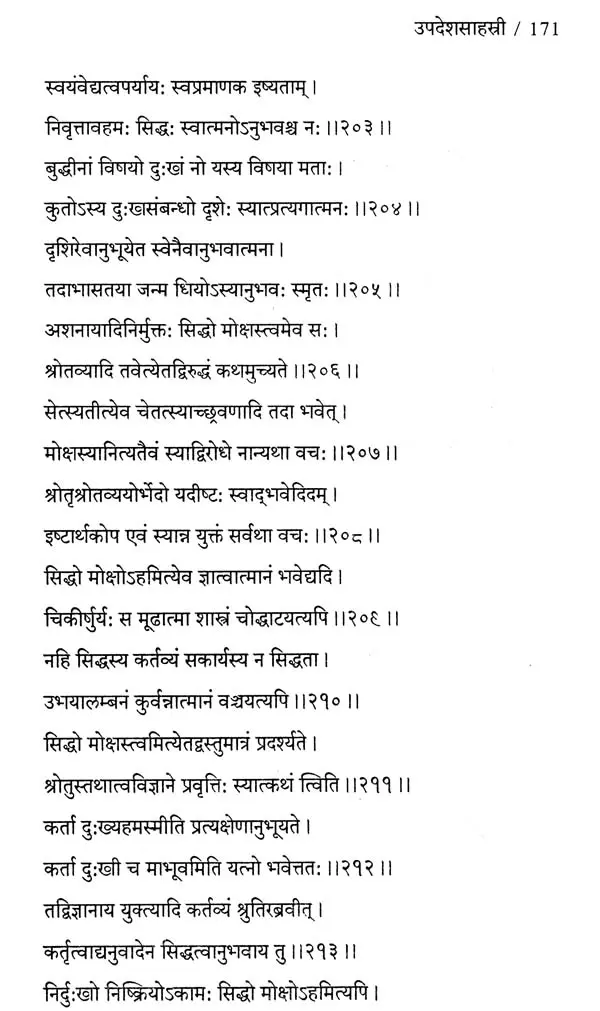About the Book The updesha begins with a statement that should shock and shake us out of our common notions of the world we live in. It states that consciousness is all that there is. This world we live in, the worlds above and below we have been told about, gods and demons, rocks and rivers, wealth and filth - all these are in essence not objects of our consciousness but are consciousness itself.
Consciousness knows all because it is all. There is no other way of knowing than being. One can know Brahman only by being Brahman. The episteme (cit) merges in the ontos (sat). The essence of knowing is being.
The method of self realization is thus to achieve the identity of epistemological and ontological entities. Pure consciousness is emptying consciousness of its contents. The end of knowledge is the ending of knowledge.
Preface Sankara's standing in the world of philosophy is undoubted and unquestioned. He stands firmly on the summit. As the first and foremost exponent of Advaita, Sankara's position has been acknowledged even by his formidable opponents. His piercing intellect, his incandescent insight, his soaring spirituality, his candid clarity, his palpable compassion, his passion for liberating mankind from its bondage of ignorance are acclaimed by all the elite and the enlightened.
Introduction Indian Philosophy has its beginnings in the hymns of the Rg. Veda which were composed by the Aryans about the middle of the second millennium B.C. And this speculative activity continued for many centuries where the Indian thought developed practically without being affected by any outside influence. Its extent as well as importance of its achievements can be seen in the several systems of philosophy evolved. It has chiefly given birth to a national religion i.c. Brahmanism and a world religion i.e. Buddhism. Unfortunately we have no exact information the time and place of the great thinkers, who are behind this development of thought of Indian Philosophy. About the teachers or thinkers no references to the lives or character is made in their teachings or anywhere else. Cowell speaking of Udayana wrote that "He shines like one of fixed stars in India's literary firma ment, but no telescope can discover any appreciable diameter; his name is a point of light, but we can detect therein nothing that belongs to our earth or material existence." Hiriyanna quoting this in his Indian philosophy says that "That description applies virtually to all who were responsible for the development of Indian thought and even a great teacher like Sankara is to us now hardly more than a name. It has been suggested that this indifference on the part of the ancient Indians towards the personal histories of their great men was due to a realization by them that Individuals are but the product of their times--that they grow from a soil that is readymade for them and breathe an intellectual atmosphere which is not of their own making."
**Contents and Sample Pages**
